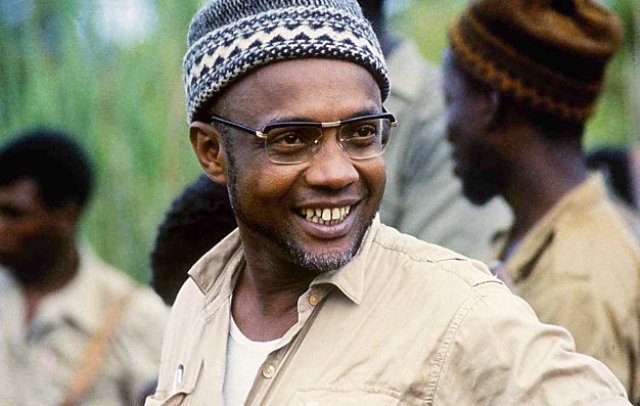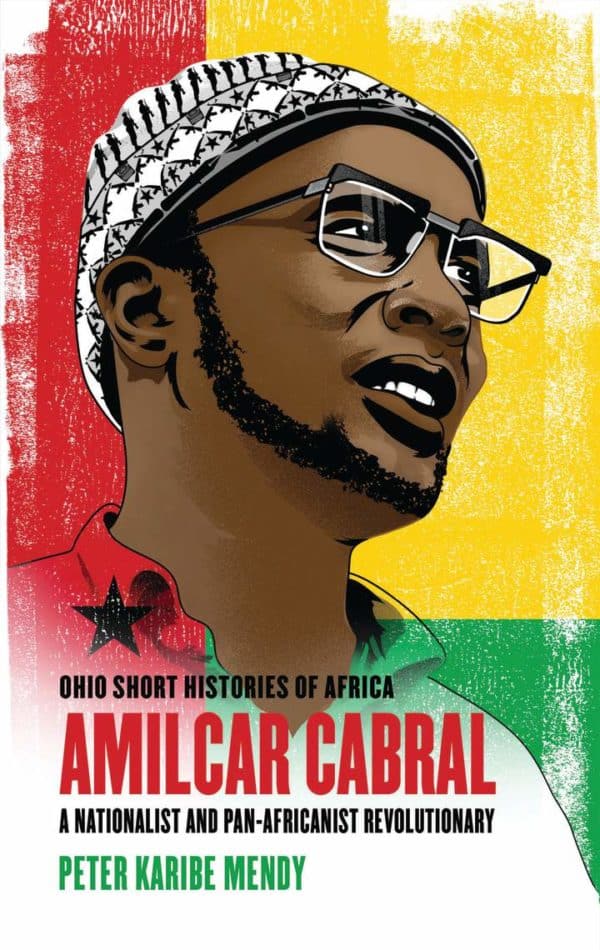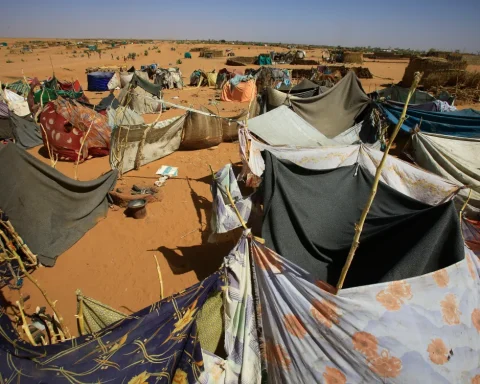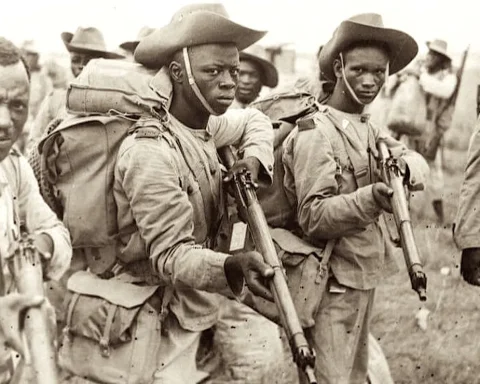
Amilcar Lopes da Costa Cabral (Portuguese: 12th September 1924 – 20th January 1973) was a Bissau-Guinean and Cape Verdean agricultural engineer, intellectual, poet, theoretician, revolutionary, political organizer, nationalist and diplomat. He was one of Africa’s foremost anti-colonial leaders.
There’s a book shedding light on Cabral and his remarkable legacy. Peter Karibe Mendy, a professor of history and Africana studies at Rhode Island College, is the author of the book titled “Amílcar Cabral: Nationalist and Pan-Africanist Revolutionary,” published by Ohio University Press. Consistent with Mendy, Cabral, the agronomist, the nationalist, pan-Africanist and internationalist, was among “Africa’s most original thinkers and politically influential figures” of the past century.
Even though he was assassinated 45 years ago, the spirit of Amilcar Cabral lives on, and his philosophy and activism for the sake of African liberation resonate today. The Guinea-Bissau and Cape Verdean engineer, socialist, activist revolutionary and anti-colonialist Amílcar Cabral led the armed struggle against Portuguese colonial rule out Africa, helping to dismantle the fascist European empire during the conflict.
This latest biography on Cabral is timely as resistance movements erupt around the world and other people of African descent are still under oppression, injustice, and exploitation.
While studying in Lisbon, Portugal, in the 1940s, Cabral interacted with African nationalists and Portuguese anti-fascists. He connected with like-minded students like Brazilian poet Mario de Andrade, Mozambican poet and revolutionary Marcelino dos Santos, and even the first Angolan president Agostinho Neto. He helped to make an association of Lusophone African students, which was called the Centro de Estudos Africanos. After he returned to Africa, he founded Partido Africano para an Independência da Guiné e Cabo Verde (PAIGC), the African Party for the Independence of Guinea and Cape Verde, and he also co-founded Movimento Popular Libertação de Angola (MPLA), the favoured Movement for the Liberation of Angola.
As Mendy noted in his book, Cabral’s treatment of socialism was grounded within the socio-economic realities of the Third World Nations. Amílcar Cabral advocated restoring the “indigenous integrity” of colonized & enslaved people. Therefore, the decolonization of Marxism and its European-centered focus strictly on history in terms of sophistication struggle. In his view, Marxism had to expand its view to be relevant to colonial systems of oppression. Cabral also maintained that colonial powers exerted cultural domination over indigenous populations through organized repression, as was the case of apartheid South Africa.
According to Cabral, national liberation and resistance to foreign domination are an act of culture. During a 1970 speech at Syracuse University, Amílcar Cabral noted that colonizers create systems to repress the colonized culturally and divide or deepen divisions during a colonized society. The colonizer “provokes and develops the cultural alienation of an area of the population, either by so-called assimilation of indigenous people or by creating a social gap between the indigenous elites and therefore the popular masses.” Through this process, he argued, “a considerable a part of the population, notably the urban or peasant petit-bourgeois, assimilates the colonizer’s mentality, considers itself culturally superior to its people and often ignores or looks down upon their cultural values.” Therefore, concerned that systems of sophistication oppression threatened to continue even after the colonizers left, Cabral involved the reconversion of minds and mindsets – re-Africanization – to enable proper integration of individuals into a liberation movement.
In addition, Cabral urged that the leadership of every independence movement must commit “class suicide,” lest they become a tiny elite and privileged class perpetuating neo-colonial policies. You can point to former South African President Thabo Mbeki of the African National Congress (ANC). And his neoliberal economic policies – which benefited only Black elites and, therefore, the white hierarchy that ruled under apartheid – as a case in point.
Under the leadership of the PAIGC, Amílcar Cabral envisioned the liberation of Portugal’s African colonies and a free Guinea-Bissau and Cape Verde. Furthermore, he established training camps in Ghana with the support of Kwame Nkrumah, and his liberation movement received aid and assistance from Cuba, the Soviet Union, China, and other communist countries.
Cabral opposed “gratuitous violence,” the revolutionary writer Frantz Fanon was a peace-oriented man who sought nonviolent protests, strikes, and demonstrations before choosing revolutionary channels. Violence was a final resort, and Portuguese colonialism radicalized Cabral. Further, Cabral viewed the African revolution and revolution for all colonized people as not merely a fight for ideas of freedom but also tangible improvements within their everyday lives of individuals.
Cabral influenced not just Portuguese antifascist revolutionaries but also the Portuguese soldiers who fought against and were captured by the PAIGC. A number of the officers who participated in the overthrow of the fascist government in Lisbon through the Portuguese leftist soldiers’ Movement (MFA) had been stationed in Guinea-Bissau.
Cabral’s vision was realized despite the chances, whilst he wasn’t alive to witness the fruits of his labour and struggle. Cabral was assassinated in 1973 by a saboteur, a PAIGC member, Inocêncio Kani, who was believed to have been working with agents of the Portuguese colonizer. The subsequent year saw the overthrow of Portugal’s fascist dictatorship – referred to as the Estado Novo or New State – and, therefore, its colonial empire’s unravelling.

Not just a pan-Africanist and a socialist, he’s also an internationalist. Amilcar Cabral was uncompromising in speaking out against political and social injustices and showed solidarity “with every just cause within the world,” Mendy noted. “His solidarity with the civil and political struggles of African Americans was clearly expressed within the aftermath of the Watts Rebellion in August 1965, when he emphatically stated: ‘We are with the blacks of us of America, we are with them within the streets of A. A., and once they are bereft of all possibility of life, we suffer with them,'” the author added.
In his last visit to the U.S.A and his second address to the United Nations General Assembly in 1972, Amilcar Cabral linked the international obligation to end Portuguese colonial domination in Africa with the commitment to end such dominance everywhere, to facilitate liberation for all colonized people.
The impact of Cabral’s philosophy extended throughout Africa, Asia, and Latin America, to liberation struggles in South Africa, Angola, Mozambique, et al. Cabral had a tremendous influence on the pro-independence movement in East Timor, another Portuguese colony subsequently occupied by Indonesia before gaining independence, and whose people are of Melanesian and Malay-Polynesian descent. East Timor, just the same way the Portuguese colonies in Africa, was underdeveloped and also had a small class of Westernized and educated elites. José Ramos Horta, the then leader of the Revolutionary Front for an Independent East Timor, or Fretilin, called Amilcar Cabral “the great African thinker and revolutionary leader of Guinea-Bissau and Cape Verde.”
Amilcar Cabral and his school of liberation through cultural identity are often found within the new Black activism and identity politics of Latin America. Even the Black, indigenous movements of individuals like the Garifuna in Honduras. Other examples are the Black, indigenous anti-colonial movement in West Papua and Melanesian cultural nationalism deeply influenced by Pan-Africanism and other Black diasporic movements.
Source: AtlantaBlackStar





